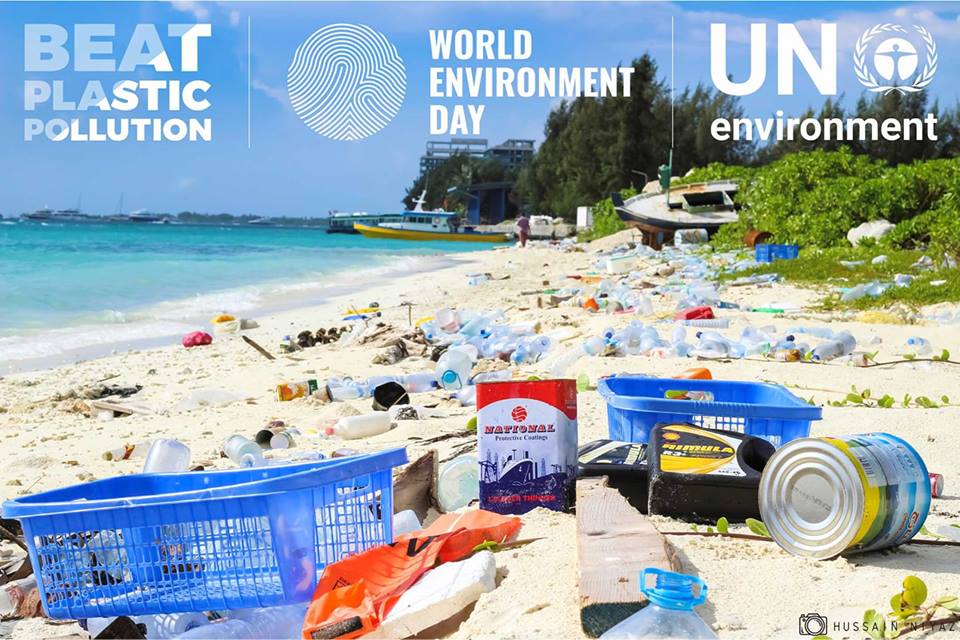Maldives opens first plastic recycling lab and vending machine
Some 104 million non-biodegradable plastic bags toxic to coral reefs and marine life were imported to the Maldives last year.

07 Jun 2018, 09:00
Under-fire Environment Minister Thoriq Ibrahim inaugurated the country’s first plastic recycling laboratory and reverse vending machine.
Built by Parley for the Oceans in the waste management company’s site in Malé’s industrial village, the laboratory has the capacity to recycle up to 500kg of plastic daily.
The global non-profit organisation is working with WAMCO to gather plastic waste from across the country, Shahina Ali, executive director of Parley’s Maldives chapter said at the opening ceremony. The lab will also function as an “education unit” on recycling for school children, she added, noting students from 45 schools are also collecting plastic waste to be sent overseas.
In his remarks, the environment minister noted that more than 800 tonnes of plastic waste were exported through Parley for recycling during the past 18 months.
Become a member
Get full access to our archive and personalise your experience.
Already a member?
Discussion
No comments yet. Be the first to share your thoughts!
No comments yet. Be the first to join the conversation!
Join the Conversation
Sign in to share your thoughts under an alias and take part in the discussion. Independent journalism thrives on open, respectful debate — your voice matters.




